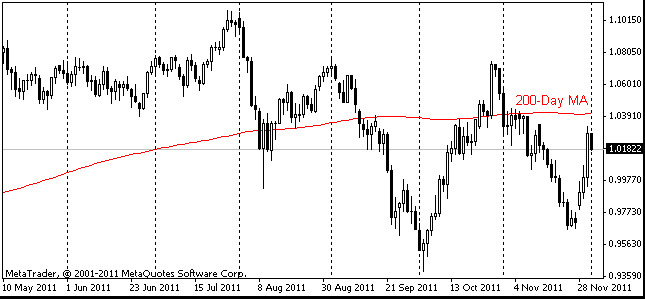EUR/usd
The euro rate didn't fluctuate much yesterday: for the most part of the day the currency hovered between 1,28 and 1.2770 and only by the end of the day it fell from 1.28 to 1.2750. Such performance was mainly connected with the profit-taking in the euro after the more than impressive growth last week. Though the news feeds attributed the weakness of the euro to the Chinese statistics (reduction in exports), we don't think that those concerns affected the price performance yesterday. The caution about risk demand was also caused by profit-taking in stock exchanges, which in its turn was spurred by the intention of investors to take their profits before the coming important event – the announcement of the results of fomc's meeting and Bernanke's press-conference afterwards. Yesterday's news from EU was rather favourable. Perhaps, that was a factor that prevented a full-fledged retracement in the single currency. The French business sentiment index has grown to the rates of April, having recouped the drop in June and July. The industrial production is gradually scrambling out of the pit. The Sentix Investor Confidence looks much better now. It has risen up to -23.2 in September against -30.3 in August. This leap immediately pushed the sentiment barometer to the highest level since April. Apparently, the euro depreciation managed to improve the situation in the manufacturing industries of Germany and France, which affected the indexes for the whole euro zone. The situation with the peripheral countries, which need a greater devaluation of the rate and/or lower labour cost, is still problematic. The evidence of this is seen in the downward revision of the Italian GDP index in 2Q. The revised estimate showed a decline by 0.8% q/q and -2.6% y/y. Anyway, the yields of short-term peripheral bonds are going down and those of core bonds are growing. It may be the signal of a normal operation of the EU bond market. This morning the euro jumped up when the Constitutional Court of Germany refuted the rumours about the delay the delivery of the decision on the ESM's constitutionality.

GBP/USD
The sterling is still above 1.60, remaining in the uptrend. Yesterday morning it was depreciating against the single currency, vainly trying to reach 0.8. Yet we believe that it's just a question of time. Britain doesn't make much use of the advantages brought by the euro depreciation. The chronic weakness of the production needs a long time of hothouse conditions to become a driver of the growth and ensure the rebalancing of the economy, so much desired by the government and BoE.

AUD/USD
The aussie didn't waste its time yesterday. Having risen above its 200-day MA and stopped a step away from 1.04 on Friday, it managed to stay above this important level and start Tuesday with further growth. The worsening of the Chinese imports hasn't affected the Aussie much, as it was already built into the rates last month.

gold
Gold keeps rallying and now is already at 1730, which is the highest level since last February. This, actually, dispels the concerns that the current year may prove to be catastrophic for the price of this precious metal. The demand from China and India is decreasing, but this can be well made up by the substantial financial aid from the ECB and Fed.
